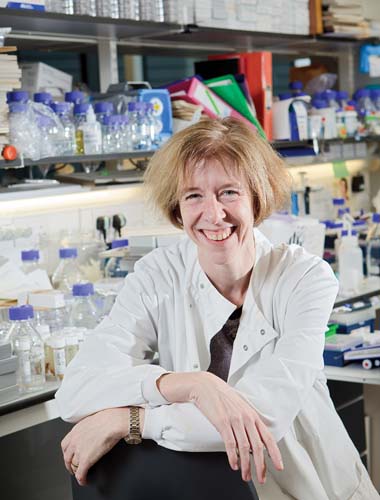 Fiona Watt: Deputy Director, Wellcome Trust Centre for Stem Cell Research; Herchel Smith Professor of Molecular Genetics, University of Cambridge; Deputy Director, Cancer Research UK, Cambridge Research Institute. ALEX RUMFORD
Fiona Watt: Deputy Director, Wellcome Trust Centre for Stem Cell Research; Herchel Smith Professor of Molecular Genetics, University of Cambridge; Deputy Director, Cancer Research UK, Cambridge Research Institute. ALEX RUMFORD
Fiona Watt finished her thesis research in record time. It was the late 1970s, and Watt had joined the lab of Henry Harris at Oxford University. Harris had perfected a method for fusing normal cells with cancer cells, an approach that allowed him to look for molecules that prevented the abnormal growth of the resulting hybrid. “When I first went to see Professor Harris, he told me, ‘There are only two intellectually important problems: cancer and differentiation,’” says Watt. “Of course, I agreed—and still do! Then he asked, ‘Which do you want to work on?’ I said, ‘Differentiation.’ So he gave me cancer.”
At the time, Harris had compiled a list of potential molecular markers for cancer cells. His students were working their way down ...


















